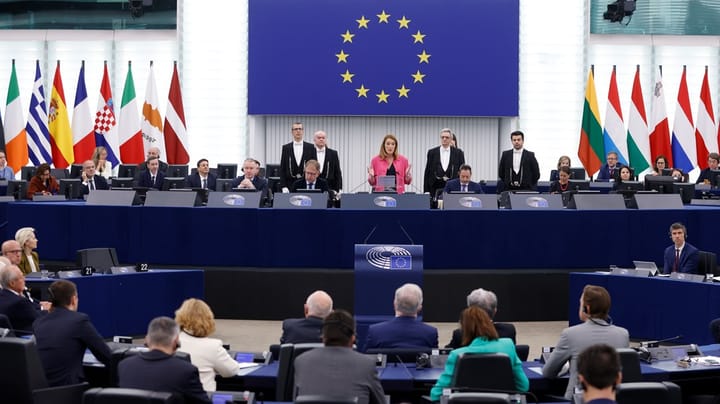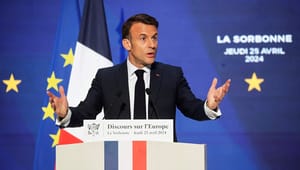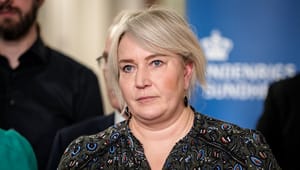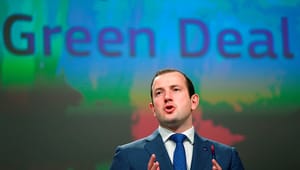Engelsk valg får betydning for EU
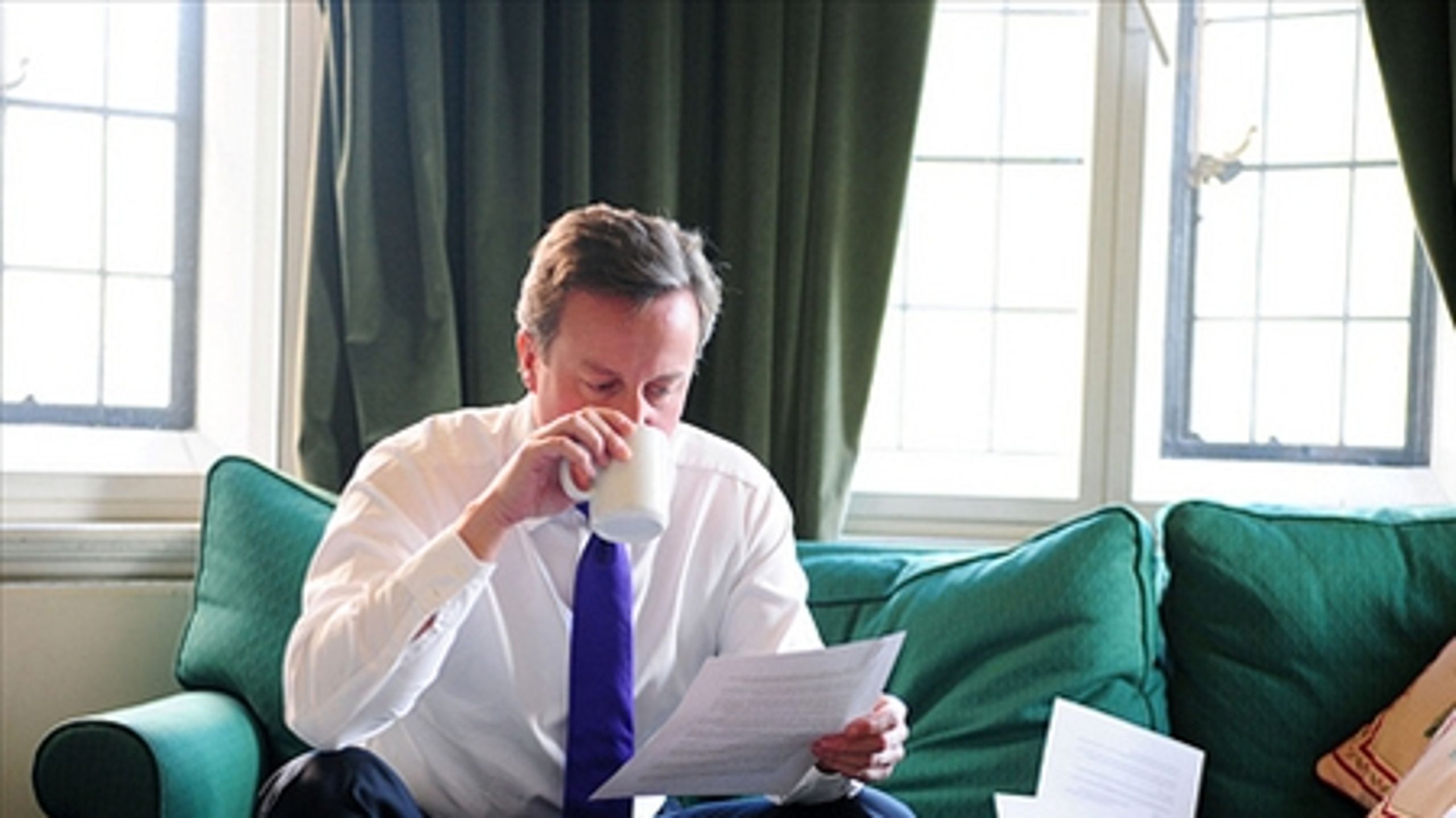

Peter Baggesgaard Hansen
JournalistFør har det været sådan, at når man har fået en EU-traktat på plads, er man straks begyndt at diskutere, hvad der skal ske efterfølgende. Det vil de konservative være mere skeptiske over for. En sejr til de konservative vil derfor kunne bremse de forberedende diskussioner, og dermed vil hele processen om yderligere integration blive forsinket.
Lars Hovbakke Sørensen
Lektor i historie ved Aarhus Universitet
Valgkampen i England spidser til, og udfaldet vil ikke kun få konsekvenser for landet selv. Det europæiske samarbejde vil blive kraftigt påvirket af, hvem der vinder det engelske valg, hvor vi kan forvente en betydelig ændring af Englands EU-politik, såfremt de Konservative danner regering. Det vurderer lektor i historie ved Aarhus Universitet, Lars Hovbakke Sørensen.
EU-politikken deler vandene
Labour og de Konservative har i denne uge fremlagt deres valgprogrammer, og holdningen til EU trækker de politiske modsætninger op. De Konservative har især været utilfredse med, at Labour-regeringen ratificerede Lissabon-traktaten uden først at have den til folkeafstemning. Derfor vil de ændre den britiske lovgivning, så "ingen fremtidig regering kan overgive suverænitet til EU eller gå med i Euroen uden en forudgående folkeafstemning".
Partiprogrammet markerer klart, at de Konservative ikke ønsker, at euroen skal indføres i England, og ændringen af lovgivningen skal desuden gøre det sværere for en fremtidig regering at gennemføre en ændring af landets valuta.
Det står der om EU i partiernes valgprogrammer:
Liberal-Demokraternes program:
Liberal Democrats believe that European co-operation is the best way for Britain to be strong, safe and influential in the future. We will ensure that Britain maximises its influence through a strong and positive commitment. But just because Europe is essential, that doesn't mean the European Union is perfect. We will continue to campaign for improved accountability, efficiency and effectiveness. Working together, the member states of the EU have a better chance of managing the impacts of globalisation, such as cross-border crime and environmental pollution.
Liberal Democrats will:
- Work with Britain's European neighbours to create thousands of new jobs by breaking down trade barriers and boosting support for green jobs.
- Work through the European Union for stricter international regulation of financial services and banking.
- Keep Britain part of international crime-fighting measures such as the European Arrest Warrant, European Police Office (Europol), Eurojust, and the European Criminal Records Information System, while ensuring high standards of justice.
- Keep the pressure on for reform of agricultural subsidies so that farmers, consumers and taxpayers get a fair deal, and the environment is protected.
- Fight to stop MEPs having to travel to the Strasbourg Parliament every month, wasting €200 million a year.
- Campaign for continuing reform of the EU budget so that money is spent only on the things the EU really needs to do.
The European Union has evolved significantly since the last public vote on membership over thirty years ago. Liberal Democrats therefore remain committed to an in/out referendum the next time a British government signs up for fundamental change in the relationship between the UK and the EU. We believe that it is in Britain's long-term interest to be part of the euro. But Britain should only join when the economic conditions are right, and in the present economic situation, they are not. Britain should join the euro only if that decision were supported by the people of Britain in a referendum.
Labours program:
We are proud that Britain is once again a leading player in Europe. Our belief is that Britain is stronger in the world when the European Union is strong, and that Britain succeeds when it leads in Europe and sets the agenda for change. Sullen resistance and disengagement achieve nothing. Stronger competitiveness must be Europe's economic priority. Europe will only grow and prosper if it is dynamic and knowledge-based, with excellent universities, competitive companies, and thriving start-ups, underpinned by a modern infrastructure of digital communications and low-carbon transport. The EU should strive to improve the regulatory environment, in particular for small and medium sized business. But we reject any attempt to renegotiate or unravel social rights for the British people, and believe that economic strength and social protection go hand-in-hand - a modern EU must enhance competitiveness and growth while guaranteeing security an fair rights at work. Fundamental reform of the EU budget remains necessary, with further changes to the Common Agricultural Policy on the way to ending export subsidies. Transfers within the EU must target those areas that are least well off. On the Euro, we hold to our promise that there will be no membership of the single currency without the consent of the British people in a referendum. We support the enlargement of EU membership to include Croatia, and believe that all Western Balkan states should open negotiations on EU accession by 2014 - one hundred years after the start of the First World War. Turkey's future membership is a key test of Europe's potential to become a bridge between religions and regions; there must be continued progress on its application to join the EU. In its foreign policy, Europe should play a key role in conflict resolution and the promotion of security, and work bilaterally to achieve its goals with the leading global powers in each region of the world. On climate change, the EU has a critical leadership role to play in securing a legally binding UN agreement, reducing its emissions by 30 per cent on 1990 levels in the context of an ambitious global deal. It must also offer stronger leadership on global poverty reduction.
We will strengthen co-operation with our EU partners in fighting crime and international terrorism, and support practical European co-operation on defence, in partnership with NATO. To symbolise it commitment to global peace and justice, and energise its young people, we propose a European Peace Corps. The poverty of the Tory vision is summed up by their fals choice between an alliance with the United States and one with Europe. In Europe they are not just isolated, but marginalised - in a tiny group of far-right parties that endorses extreme views and is stuck in climate-change denial. Elsewhere in the world their anti-European attitudes are seen as undermining British influence. They are helpless to shape change, or defend our interests.
De Konservatives program:
We will press to keep the EU's doors open to those countries, including Turkey, that wish to join, conditional on the rigorou application of the accession criteria
We will be positive members of the European Union but we are clear that there should be no further extension of the EU's power over the UK without the British people's consent. We will ensure that by law no future government can hand over areas of power to the EU or join the Euro without a referendum of the British people. We will work to bring back key powers over legal rights, criminal justice and social and employment legislation to the UK.
The European Union has done much to reconcile the painful division of Europe and to spread democracy and the rule of law across our continent. But it should not rest on those achievements. European countries need to work together to boost global economic growth, fight global poverty, and combat global climate change. The European Union has a crucial part to play in enabling the countries of Europe to meet these great challenges of the 21st century. A Conservative government will play an active and energetic role in the European Union to advance these causes. We will stand for open markets, and a strong transatlantic relationship; for an EU that looks out to the world, and that builds strong and open relations with rising powers like China and India. And, like every other Member State, we will fight our corner to promote our national interests.
We believe Britain's interests are best served by membership of a European Union that is an association of its Member States. We will never allow Britain to slide into a federal Europe. Labour's ratification of the Lisbon Treaty without the consent of the British people has been a betrayal of this country's democratic traditions. In government, we will put in place a number of measures to make sure this shameful episode can never happen again.
Restore democratic control
In future, the British people must have their say on any transfer of powers to the European Union. We will amend the 1972 European Communities Act so that any proposed future Treaty that transferred areas of power, or competences, would be subject to a referendum - a ‘referendum lock'. A Conservative government would never take the UK into the Euro. Our amendment to the 1972 Act will prevent any future government from doing so without a referendum.
Unlike other European countries, the UK does not have a written constitution. We will introduce a United Kingdom Sovereignty Bill to make it clear that ultimate authority stays in this country, in our Parliament. The Lisbon Treaty contains a number of socalled ‘ratchet clauses', which allow the powers of the EU to expand in the future without a new Treaty. We do not believe that any of these ‘ratchet clauses' should be used to hand over more powers from Britain to the EU. So a Conservative government will not agree to the UK's participation in the establishment of a European Public Prosecutor's Office or permit its jurisdiction over the UK. We will change the 1972 Act so that an Act of Parliament would be required before any ‘ratchet clause' could be used. Additionally, the use of a major ‘ratchet clause' which amounted to the transfer of an area of power to the EU would be subject to a referendum. The steady and unaccountable intrusion of the European Union into almost every aspect of our lives has gone too far. A Conservative government will negotiate for three specific guarantees - on the Charter of Fundamental Rights, on criminal justice, and on social and employment legislation - with our European partners to return powers that we believe should reside with the UK, not the EU. We seek a mandate to negotiate the return of these powers from the EU to the UK.





